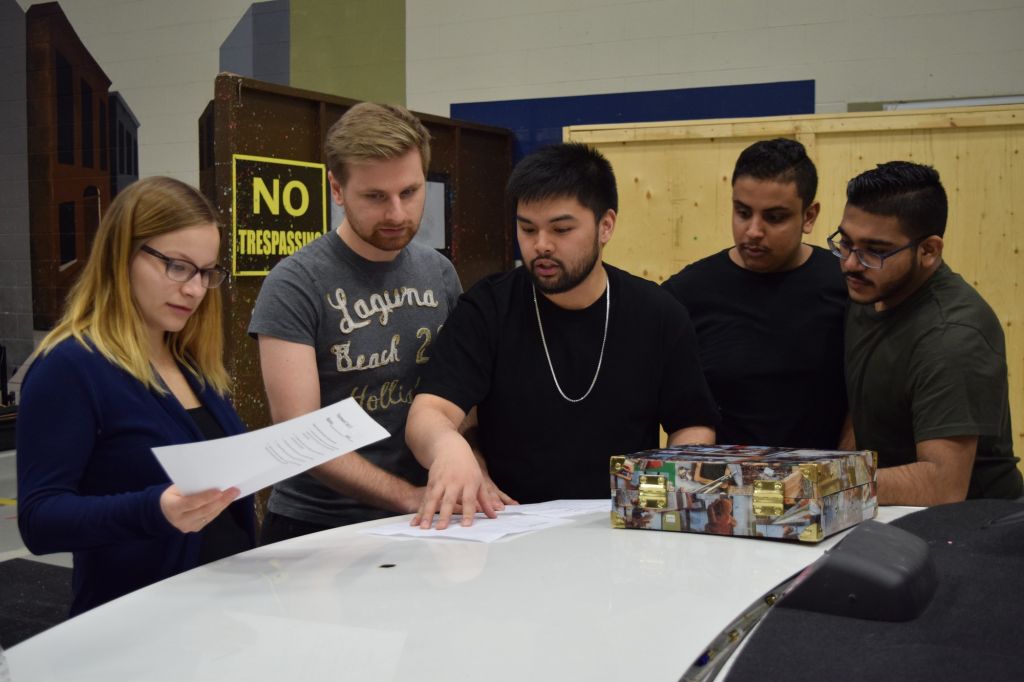The coordinator/professor for the financial services program sees potential for future interdisciplinary co-operation and collaboration at Algonquin.
As she was preparing and planning to have her business administration and finance students participate in an escape room activity in the P-building simulation lab, Angela Lyrette realized how it could benefit the entire college community.
“I had originally planned to take my group to Escape Manor here in Ottawa but when we were denied that opportunity, we were given one that led to something better,” she said in an interview with the Times.
She worked with Chris Martin, a partial-load professor with the Police and Public Safety Institute, to create a challenge that would encourage her class to implement problem-solving skills and practice conflict resolution.
Martin, who organized a similar activity for his police foundations students last year, is happy to see the lab getting some recognition by other faculties.
“This college has a huge campus and if you’re creative enough, you can make use of the different spaces it has to offer,” he said. “This simulation lab is here for the students, so let’s use it.”
On March 5, Lyrette put her students to the test and had them work in groups to decipher her clues and find the answers to solve a mystery. According to both her and Martin, this was a way for the students to apply what they have learned in the classroom in a new setting.
“What this college does best is consider theory and practice as two parts of a puzzle,” said Martin. “None of the theory you learn in class means anything if you can’t actually use it in real life.”
Students in this class were able to successfully solve the problem together while using the communication skills they have been working on for the entire semester.
“This was a really exciting team building experience that got all of us involved,” said student Douglas Wood. “I think it definitely brought out people’s skills and strengths and encouraged us to work together.”
The success of this activity with her class has made Lyrette question how it could be used for other programs. According to her, it’s a transferable exercise that could be customized to fit the needs of any group.
“This is fun and it’s welcoming to new kinds of conversations and to new ways of looking at a problem,” she said. “I think that this kind of open and direct communication could be beneficial for everyone in this community.”
While she believes this would make for an excellent activity for students in any discipline, she also feels it would be useful for college executives and faculty as well.
“I think collaboration is really important and we don’t do enough of it,” she said. “We go into our separate offices and we feel like no one could possibly understand what we are struggling with, but when we take the opportunity to look beside us, we might find a colleague who has dealt with something similar and has come up with a solution.”
For Lyrette, the simulation lab and the idea of an escape room activity presents an opportunity for the teachers to grow as individuals.
It is her opinion that if faculty members got together in this setting and shared their knowledge and different learning strategies, the college would be a better place for everyone, especially the students.
“Individually we are probably all very good teachers but if you put us all in a room together and give us a spark, imagine what we could accomplish for our students.”
LISTEN to an audio version of this story.
https://soundcloud.com/user-289492961/college-escape-room-jenkins


